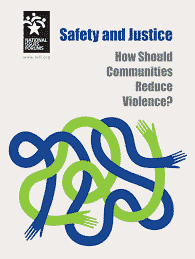 The Interactivity Foundation has been collaborating with the Kettering Foundation and its affiliate organization, the National Issues Forum (NIF), to promote dialogues around police-community relations. IF Fellow Sue Goodney Lea has been working in the Baltimore/D.C. area to create forums for citizens to talk with police about how to enhance public safety and reduce both violence and violent encounters between police and citizens. Suzanne is planning a collaboration with Baltimore Police Department’s Chief Russell, who leads the department’s Community Partnership Division. IF would help the Baltimore P.D. to facilitate a series of police-community dialogues this summer. The discussions will bring foot-patrol officers together with citizens and community leaders from within each of Baltimore’s nine police districts.
The Interactivity Foundation has been collaborating with the Kettering Foundation and its affiliate organization, the National Issues Forum (NIF), to promote dialogues around police-community relations. IF Fellow Sue Goodney Lea has been working in the Baltimore/D.C. area to create forums for citizens to talk with police about how to enhance public safety and reduce both violence and violent encounters between police and citizens. Suzanne is planning a collaboration with Baltimore Police Department’s Chief Russell, who leads the department’s Community Partnership Division. IF would help the Baltimore P.D. to facilitate a series of police-community dialogues this summer. The discussions will bring foot-patrol officers together with citizens and community leaders from within each of Baltimore’s nine police districts.
—How can we improve relationships to build trust between police and community? What challenges exist? If there was a better working relationship, would this address the crime/justice issues that most concern you? Would hiring more police officers help? What if we expanded neighborhood watch programs? Does getting more citizens directly involved in promoting community safety risk an increase in vigilantism? What can we do to ensure the civil rights of all citizens are protected?
—Curtail traffic stops (which have a high risk for escalation) & “stop & frisk” enforcement. Require implicit bias training for police– do you think this would be helpful? Why or why not? Could we find ways to make enforcement and sentencing more equitable? Are long jail terms a deterrent to habitual criminals? Do they protect the community? How would your community react if petty criminals and drug dealers were released back into your community?


